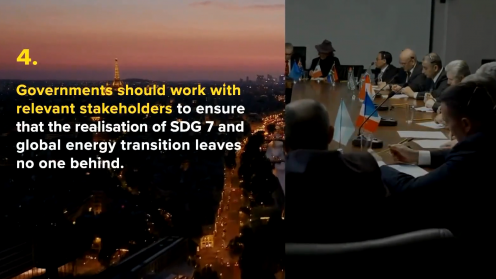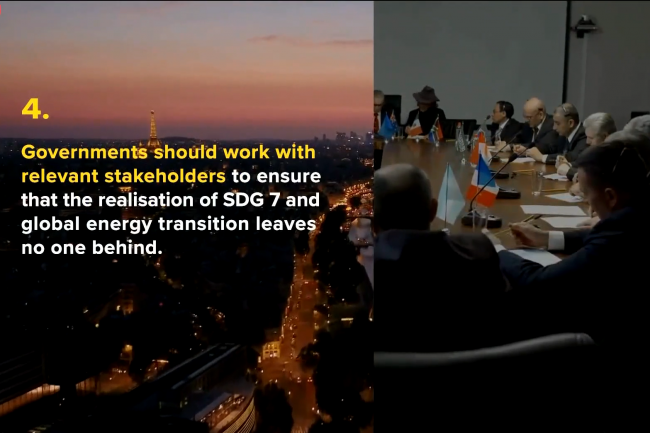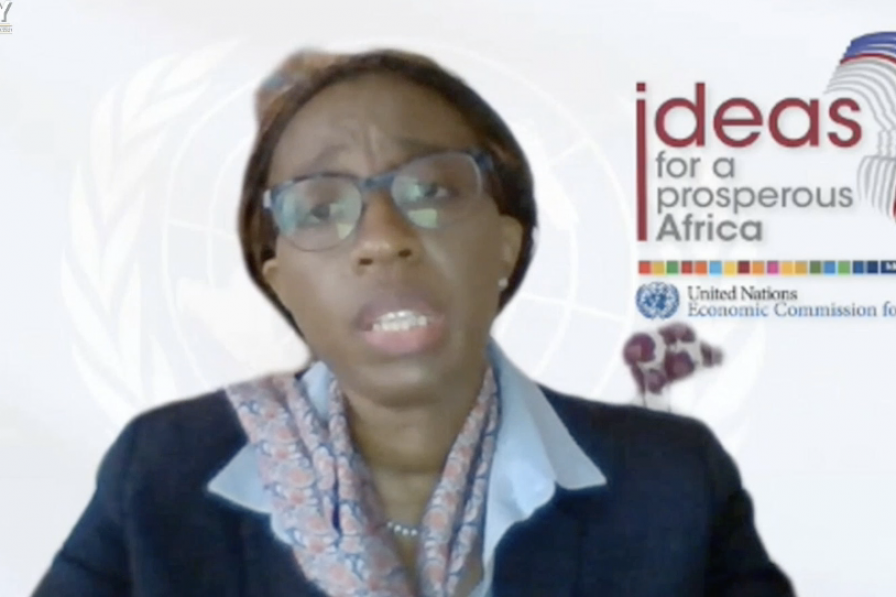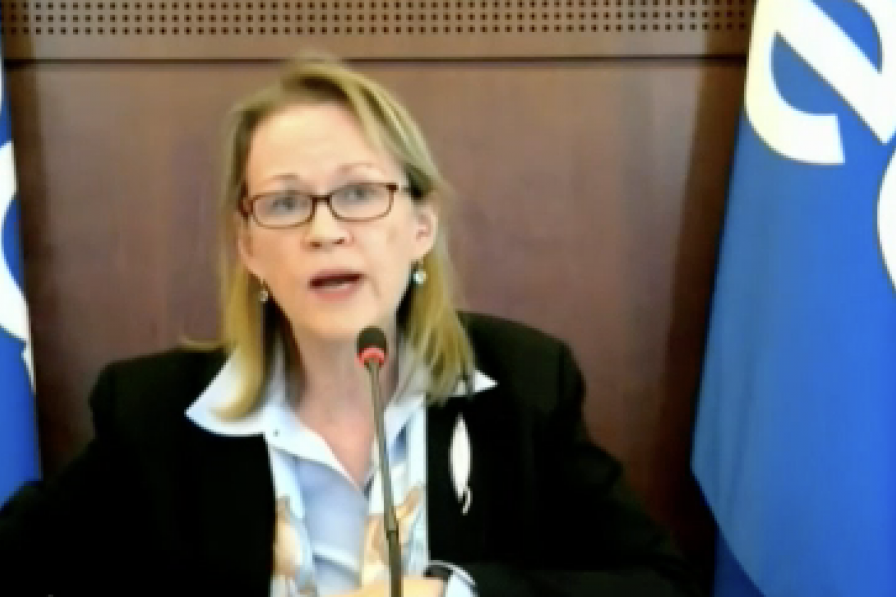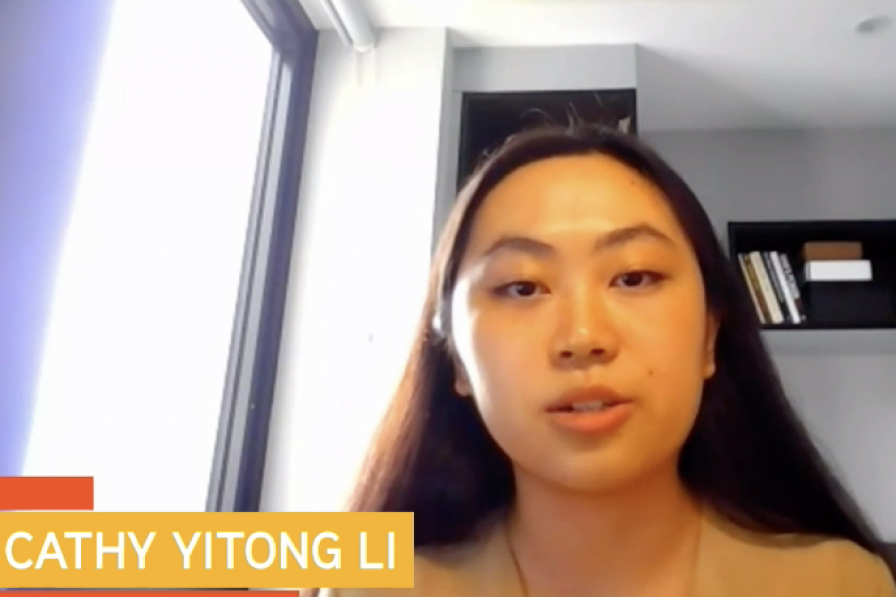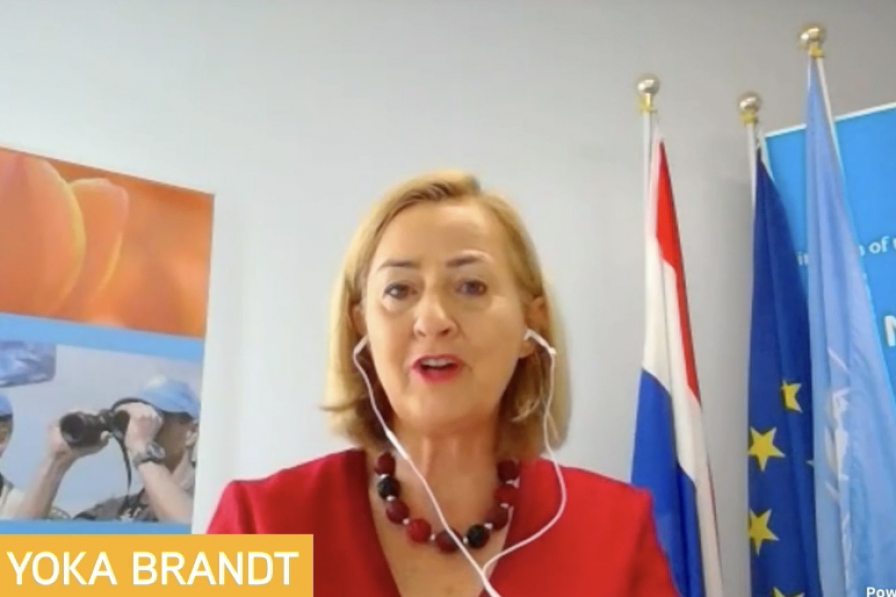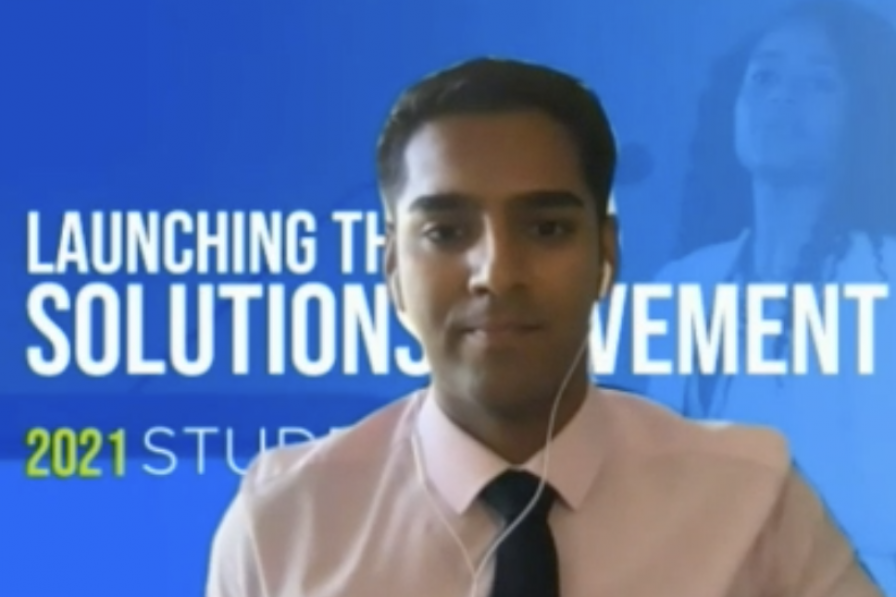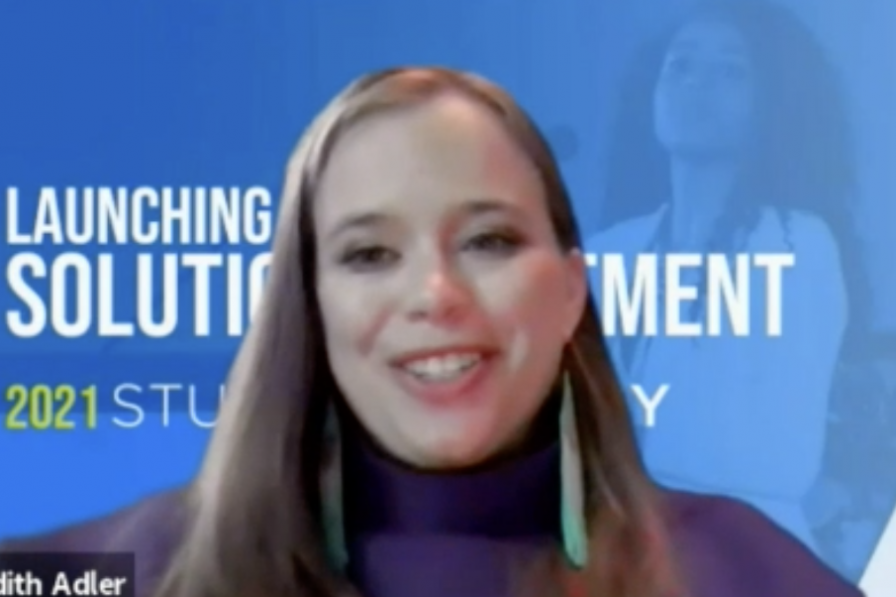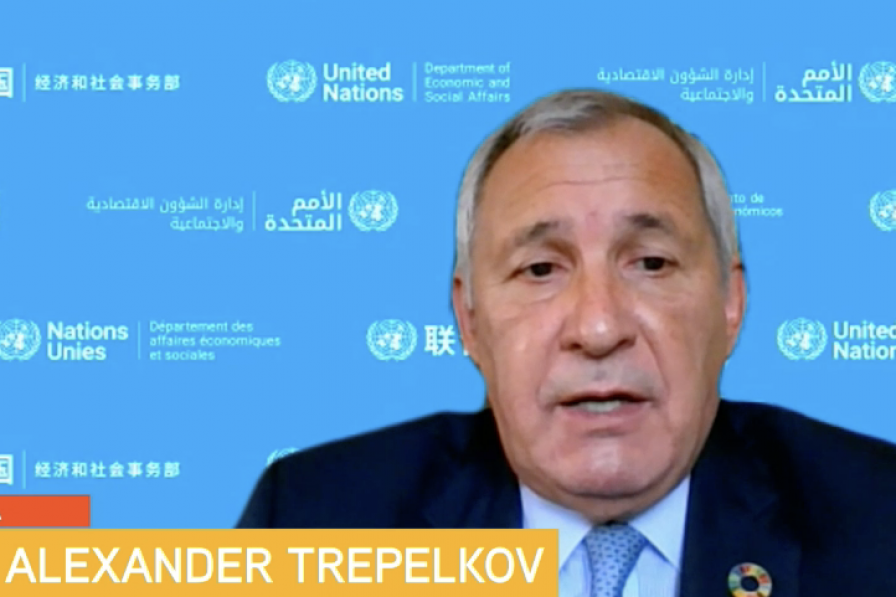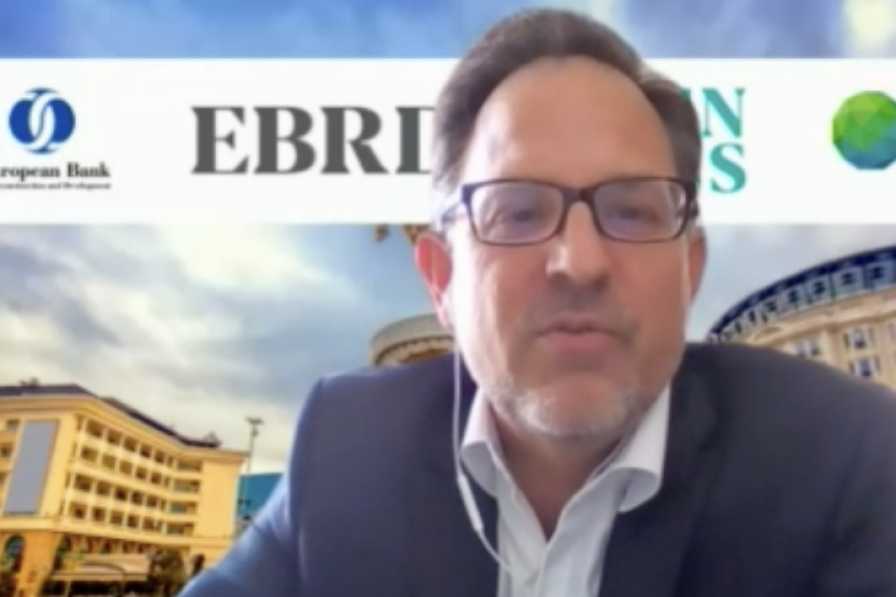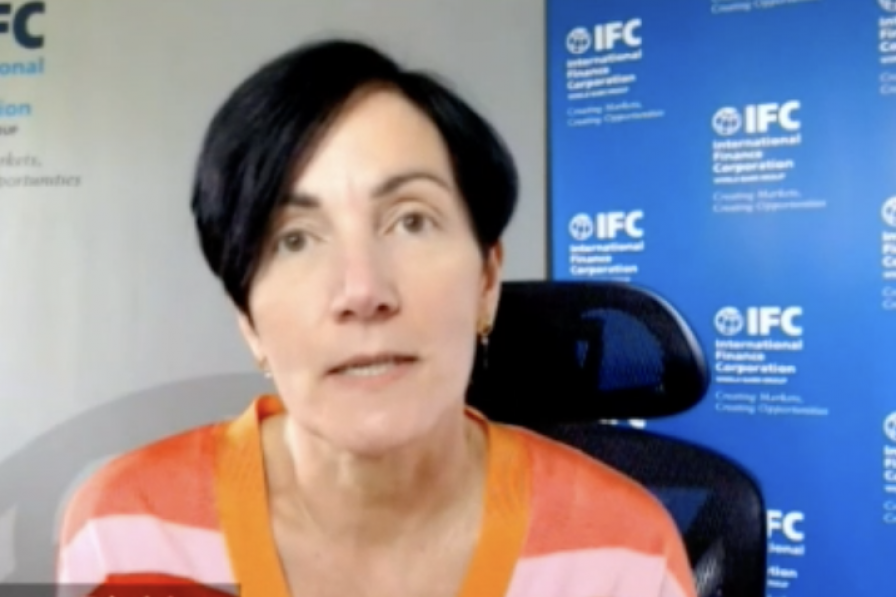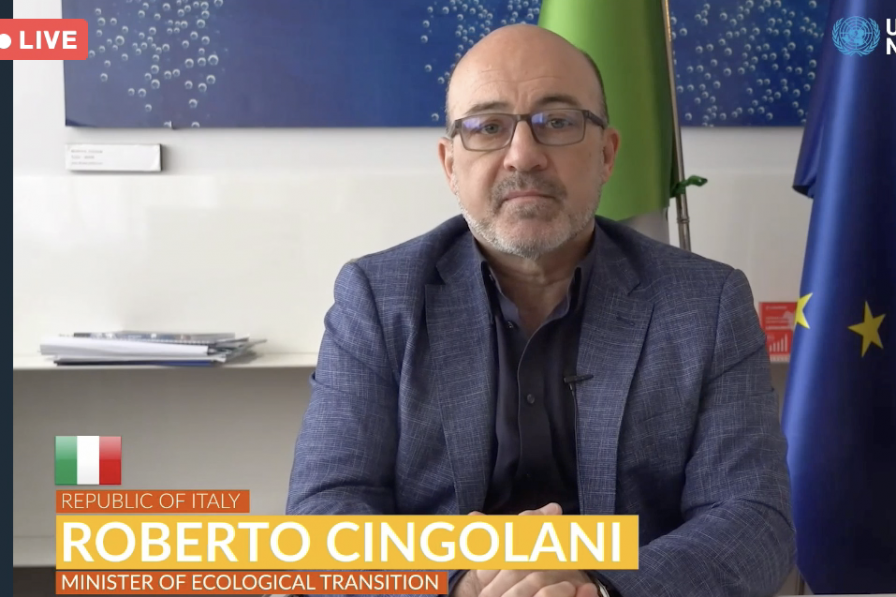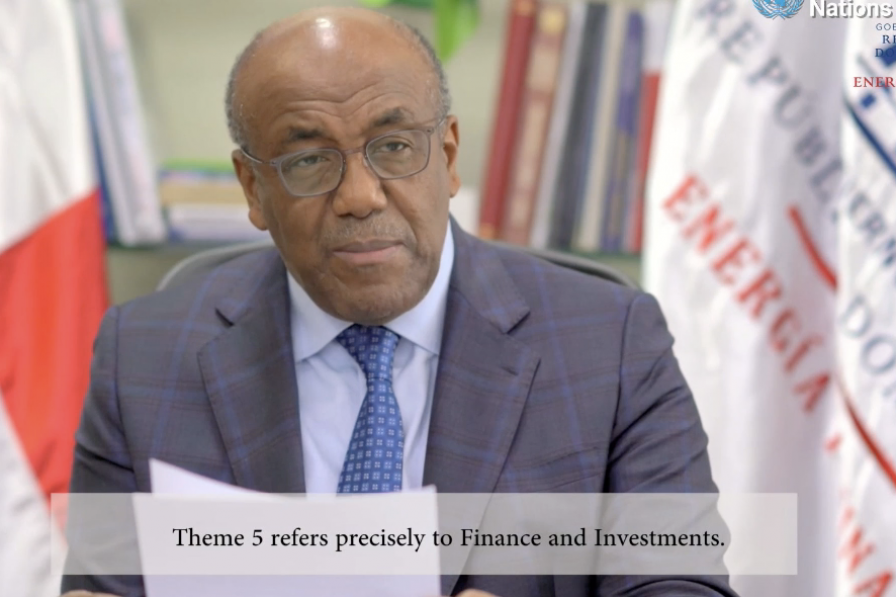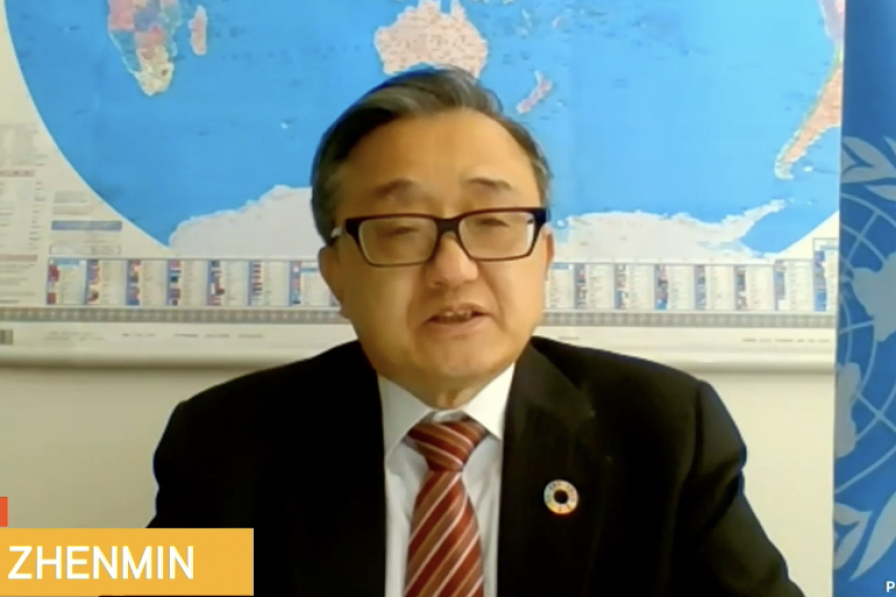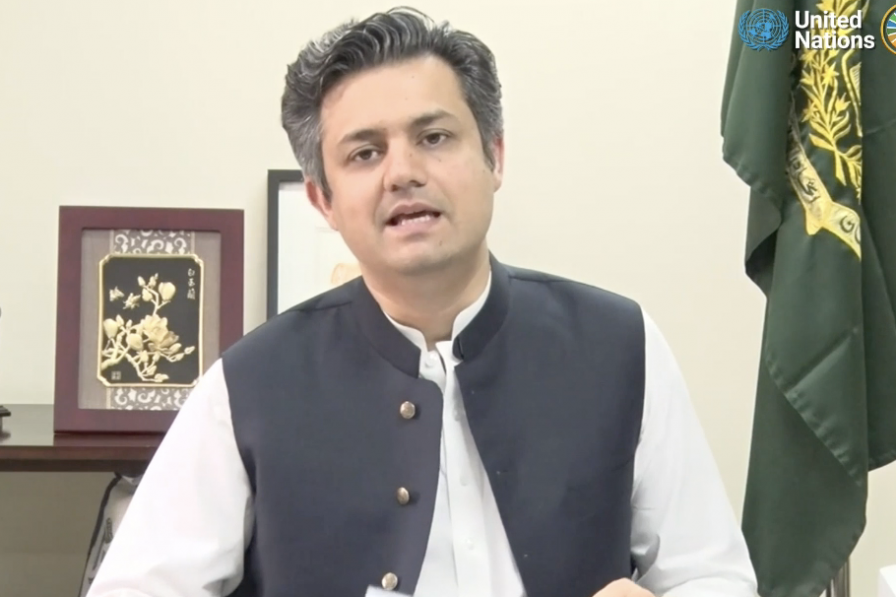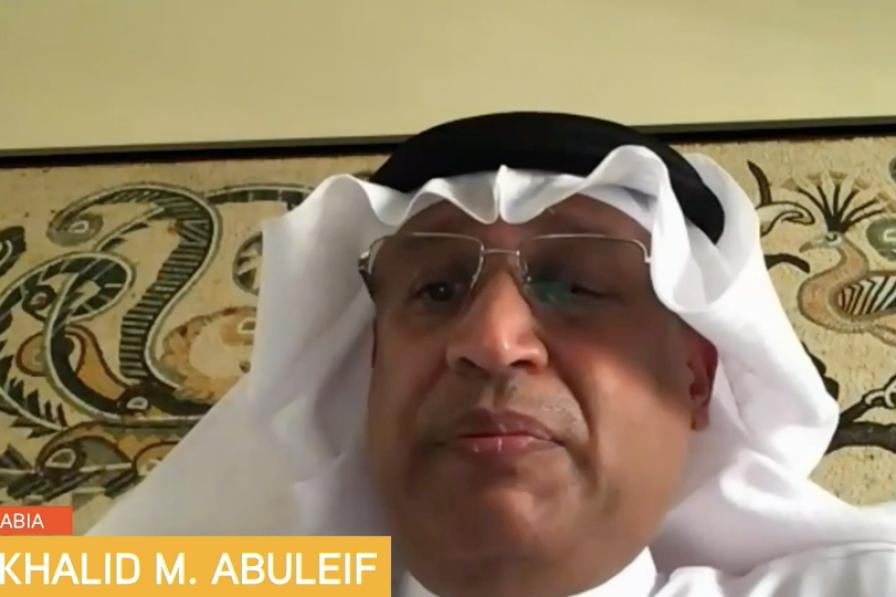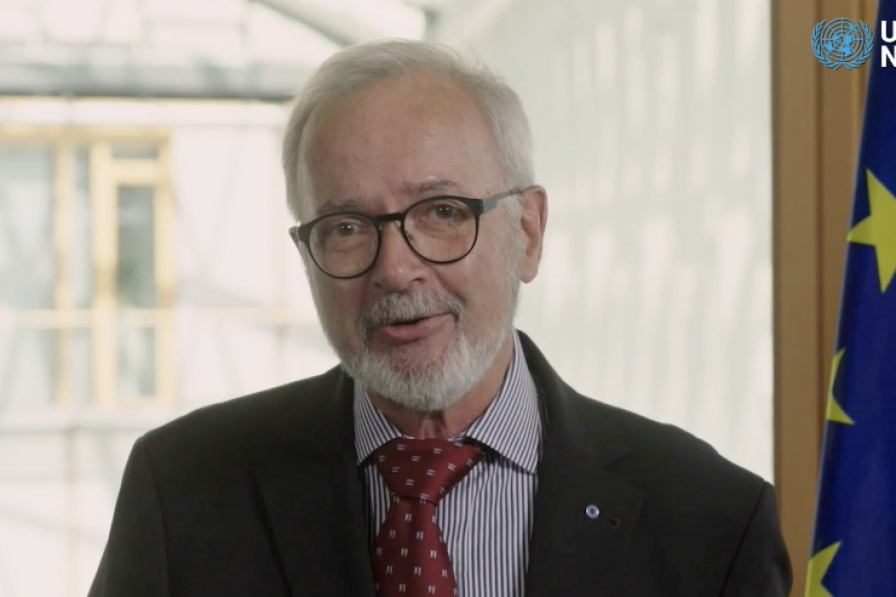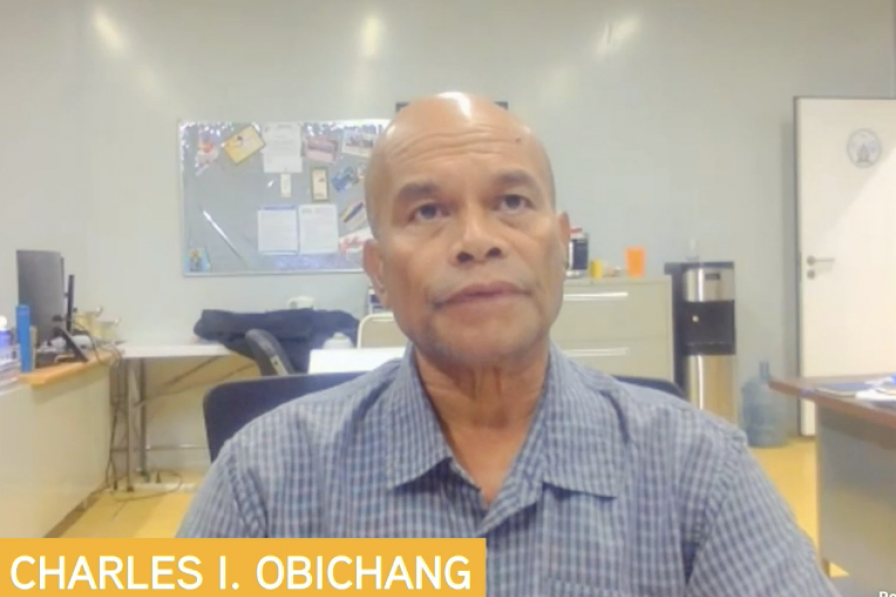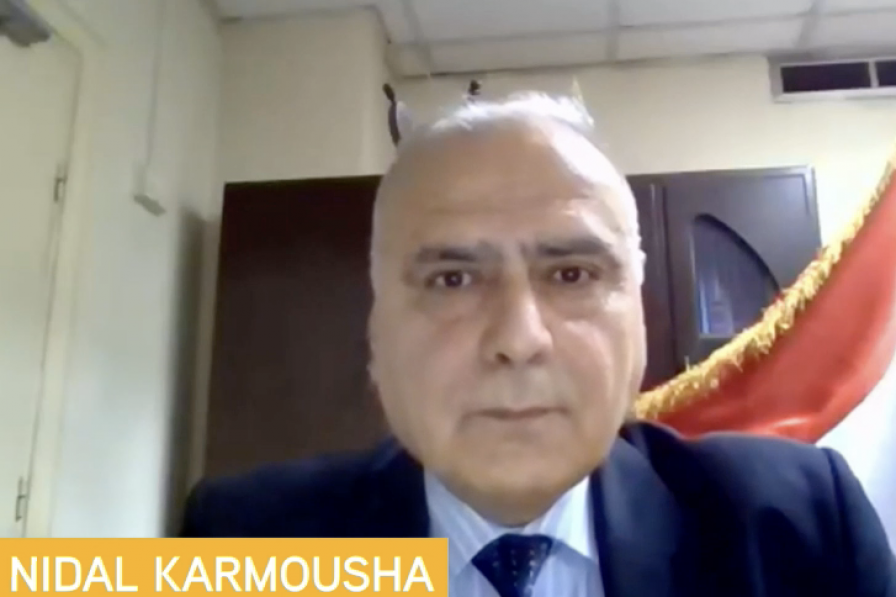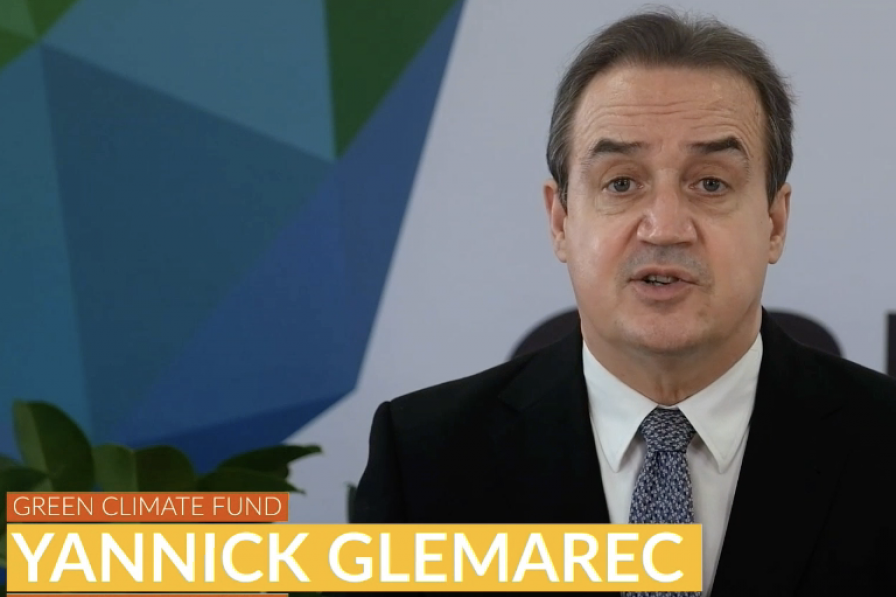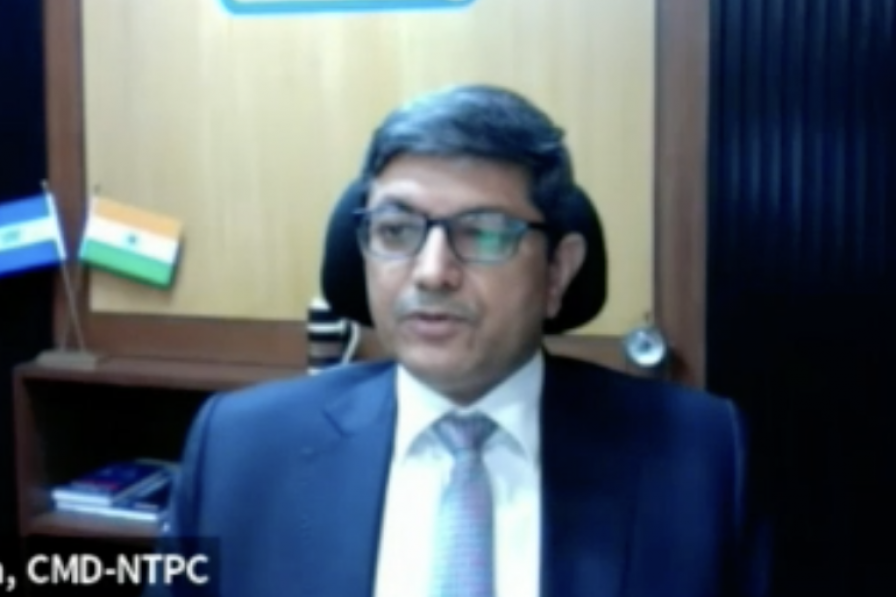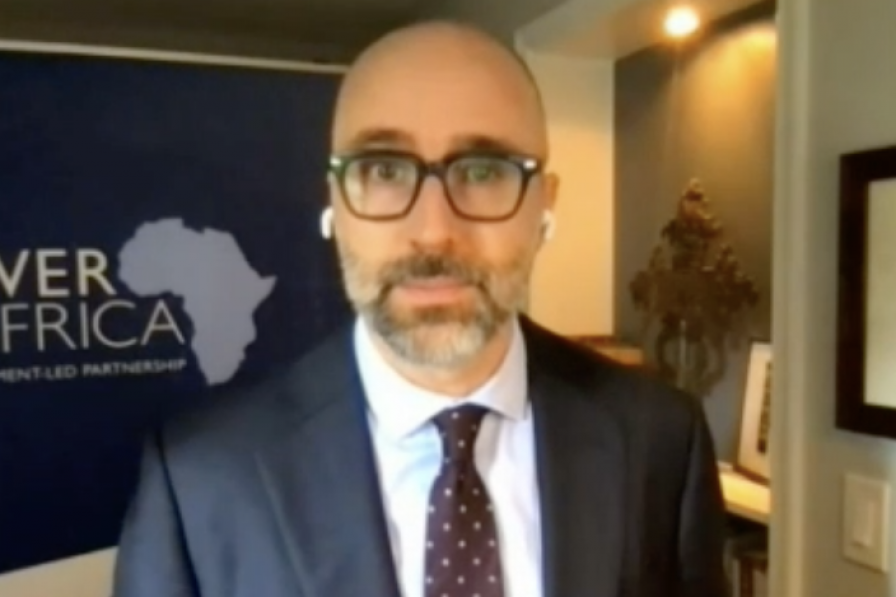The week of the High-Level Dialogue on Energy (HLDE) Ministerial Thematic Forums wrapped up on 25 June 2021 with Grand Closing messages from the HLDE Secretary-General, UN Under-Secretary-General Liu Zhenmin, and the HLDE Co-Chairs, Achim Steiner, Administrator, UN Development Programme (UNDP), and Damilola Ogunbiyi, Special Representative of the Secretary-General for Sustainable Energy for All (SEforALL).
Steiner said the week had made clear that the energy revolution has begun, but it remains to be seen is how fast and fair it will be. He urged everyone to not let the opportunity to properly shape that future slip away. Ogunbiyi detailed the energy compacts announced or previewed during the week and called for more before the HLDE, offering her team’s help in preparing the compacts. Liu said the five Theme Reports launched during the week “have shown us where we must go” and provided clear recommendations and targets for the HLDE to consider, while the energy compacts announced have demonstrated “new levels of action and commitment to delivering the sustainable energy goals.” He called for all parties to demonstrate the political will to deliver clean, sustainable and affordable energy for all by 2030.
The ministerial segment of the fifth and final HLDE Ministerial Thematic Forum, on Finance and Investment, discussed the current shortfalls in loans, grants and investments for sustainable energy and access to clean energy and clean cooking. Speakers highlighted the need to mobilize more funds and find ways to attract more investment and collaboration from the private sector if the SDG 7 targets are to be achieved in the nine years left before 2030.
The ministerial segment opened with remarks from a youth advocate, who urged everyone to involve youth directly in efforts to finance, innovate and invest in the energy transition because it involves their future -- “you can do nothing about us without us.” This statement was followed by remarks from Global Champions on the day’s theme and the four co-leads of the Technical Working Group on Finance and Investment on the Report and its recommendations.
Three energy compacts from a multilateral development bank, a power utility and a student group were formally announced, and an international partnership also previewed the compact it intends to submit. Several ministers also took the opportunity to preview compacts they are considering submitting to the HLDE in September 2021.
Other features of the segment were remarks by ministers on the day's theme, a “fireside chat” with James Mwangi, Group Managing Director and Group CEO, Equity Group Holdings Plc, and an interactive panel discussion on the day’s theme involving representatives from governments, industry and civil society. Prior to the ministerial segment, multi-stakeholder dialogues considered the following topics: inclusive and sustainable recovery, and financing the global climate and energy goals.
Commitment Announcements
Matthew Jordan-Tank, Director, Sustainable Infrastructure Policy & Project Preparation, European Bank for Reconstruction and Development (EBRD), announced a compact regarding its existing Green Cities program. The compact will contribute to a minimum of 50 Green City Action Plans and invest around EUR 1.9 billion in Green Cities priority investment by the end of 2023, with support going to areas such as “smart cities” technologies and increased energy efficiency in buildings, transport, water, and waste management.
Meredith Adler, Executive Director, and Kabir Nadkarni, Climate Finance Advisor, Student Energy, jointly announced a compact to raise USD 150 million toward upskilling, mentoring and directly financing 10,000 youth-led clean energy projects by 2030.
Gurdeep Singh, Chairman and Managing Director of India’s largest power utility, NPTC Ltd., announced his company’s compact to install 60 GW of cumulative renewable energy capacity and cut net energy intensity by 10% vs. 2012 levels by 2032. He added that NPTC will also join at least two international alliances and groups to facilitate clean energy research and promote sustainability in the energy value chain by 2025.
Mark Carrato, Coordinator of the Power Africa partnership led by the US Agency for International Development (USAID), said the partnership is developing a compact to mobilize USD 300 million to electrify 20,000 health clinics in Africa by 2030.
Additional statements during the ministerial segment previewed other intended compacts, including:
- Antonio Almonte, Minister of Energy and Mines, Dominican Republic, said his country will commit by 2030 to achieve 99% energy access, raise renewables’ share of power generation to 30%, and increase energy efficiency by 30%; and
- Charles Obichang, Minister of Public Infrastructure and Industries, Palau, said his country was exploring a possible commitment on going fossil fuel-free while ensuring water and food security.
Official Launch of the Theme Report on Finance and Investment
The Theme Report on Finance and Investment was officially launched during the ministerial segment of the Forum. In an interactive panel, Werner Hoyer, President of the European Investment Bank (EIB), Vera Songwe, Executive Secretary, UN Economic Commission for Africa (UN ECA), Stephanie von Friedeburg, Senior Vice President, Operations, International Finance Corporation (IFC), and Mary Warlick, Deputy Executive Director of the International Energy Agency (IEA) commented on some of the priority recommendations of the report, which was developed by a Technical Working Group of multi-stakeholder experts co-led by the four agencies. The report calls for:
- accelerating the delivery of public finance in support of sustainable energy goals;
- regaining the momentum lost on energy access investments during the COVID-19 pandemic;
- aligning energy financing with all dimensions of the Paris Agreement;
- governments working with relevant stakeholders to ensure that the realization of SDG 7 and the global energy transition leaves no one behind;
- enhancing local currency funding and support for deepening domestic capital markets to achieve SDG 7;
- making better use of blended finance schemes to mobilize and maximize private capital for clean energy investments and innovative energy technologies;
- correcting market-distorting subsidies and addressing the lack of carbon pricing frameworks and inadequate accounting of environmental externalities that hold back sustainable investment;
- de-risking projects and fixing regulatory barriers to ensure market openness, attractiveness, and readiness for private sector finance; and
- developing new mechanisms to link sustainable finance with opportunities to support SDG 7 and reward ambitious energy transition strategies.
Global Multi-Stakeholder Dialogue Segment
Prior to the day’s ministerial segment, two multi-stakeholder dialogues discussed the day's themes.
Leaving No One Behind: Inclusive and Sustainable Recovery: This dialogue opened with remarks from the Co-Chairs, Sarah Ashour, Head of the Economic and Financial (Second) Committee, Permanent Mission of Saudi Arabia to the UN, and Nicola Bazzani, Deputy Head of the Office for Energy, Environment and Sustainability, Ministry of Foreign Affairs and International Cooperation, Italy.
The Panel on “advancing SDG 7 through sustainable COVID-19 recoveries” was moderated by Jean-Paul Adam, Director, Technology, Climate Change and Natural Resources Management, UN Economic Commission for Africa (ECA), who highlighted the world’s dual race -- towards net-zero emissions and towards 100% energy access -- and asked how these goals can be achieved in terms of mobilizing financing. Speakers highlighted the need for targeted strategic policies for low-carbon development, as well as technical assistance to create the appropriate regulatory and institutional frameworks to attract clean energy investment.
The Panel on “investment in clean energy technologies” was moderated by Tim Gould, Head, Division for Energy Supply Outlooks and Investment, International Energy Agency (IEA). Speakers stressed the need to apply the right kind of capital to the right kind of problem, and emphasized the critical role of blended finance in de-risking clean energy projects, calling for it to be directed towards innovative technologies and mini-grids. They outlined barriers to scaling up clean energy investment including: transmission and distribution systems based on fossil fuels; lack of legislation in countries, given that policy instruments run the risk of simply being over-turned by new governments; and the need for investors to have confidence that they will receive their payments and recover their capital.
Financing the Global Climate and Energy Goals: Co-Chair Sardar Mohazzam, Managing Director, National Energy Efficiency and Conservation Authority, Pakistan, opened this dialogue, highlighting Pakistan’s commitment to reduce emissions by 60% by 2030.
During a panel on financing for adaptation, panelists said the private sector currently supplies only 2% of all clean energy sector funding.
On accelerating sustainable finance through international cooperation and capacity building, panelists said investment must triple during this decade to get back on track towards the net-zero target for 2050, and that the common global interest requires developed countries to urgently commit to help the most vulnerable countries. One panelist recommended “strategic followership,” rather than reinventing the wheel over and over, when developing financing mechanisms.
On setting a global carbon price, panelists debated carbon taxing versus carbon emissions trading systems. They noted that carbon price border adjustments by individual countries can avoid leakage given that a global carbon price does not yet exist, and that tax systems are much easier for countries than emissions trading systems because tax infrastructure generally already exists.
To receive continuing coverage of events like this delivered to your inbox, subscribe to the ENB Update newsletter.
Selected Photos
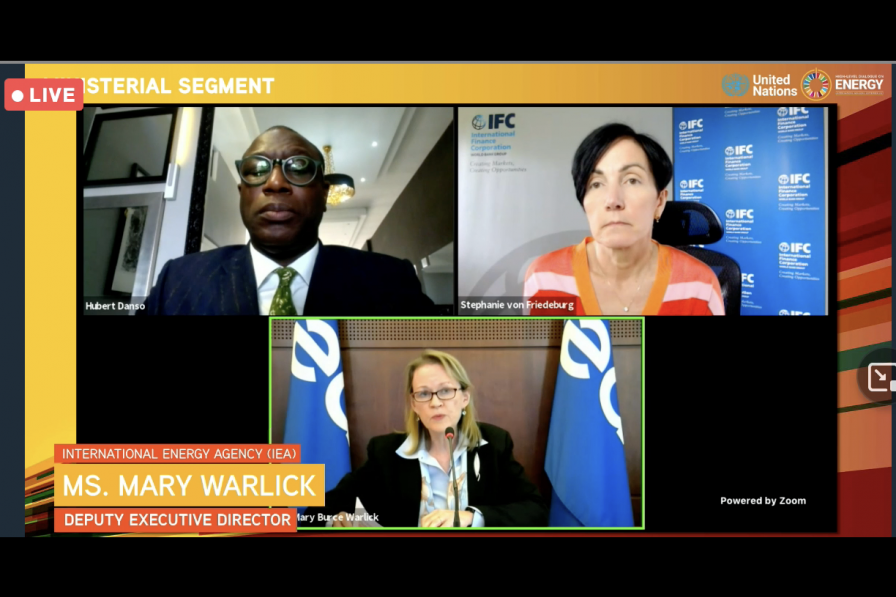
Hubert Danso, Chairman, Africa Investor, African Green Infrastructure Investment Bank Advisory Board; Stephanie von Friedeburg, Senior Vice President, Operations, IFC; and Mary Warlick, Deputy Executive Director, International Energy Agency (IEA)
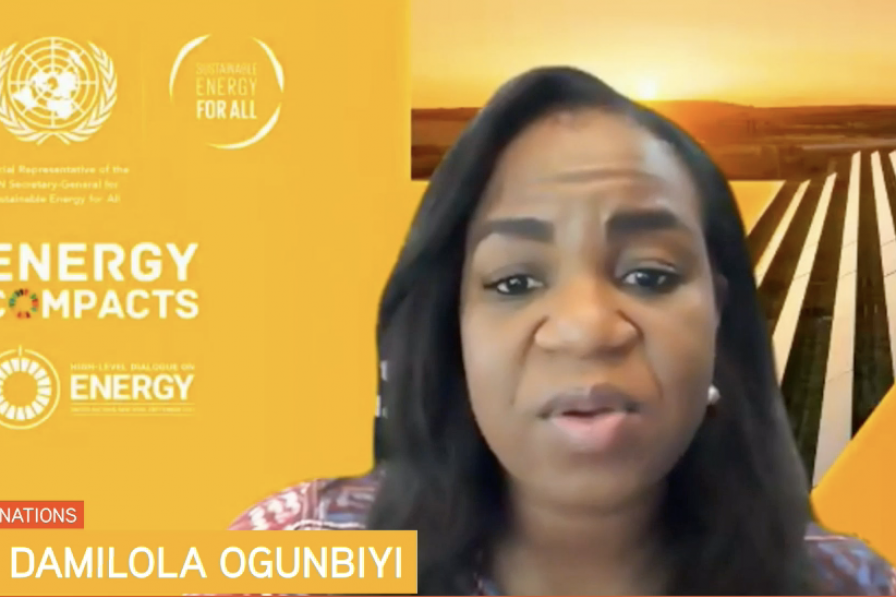
Damilola Ogunbiyi, Special Representative of the Secretary-General for Sustainable Energy for All, UN-Energy Co-Chair, and HLDE Co-Chair
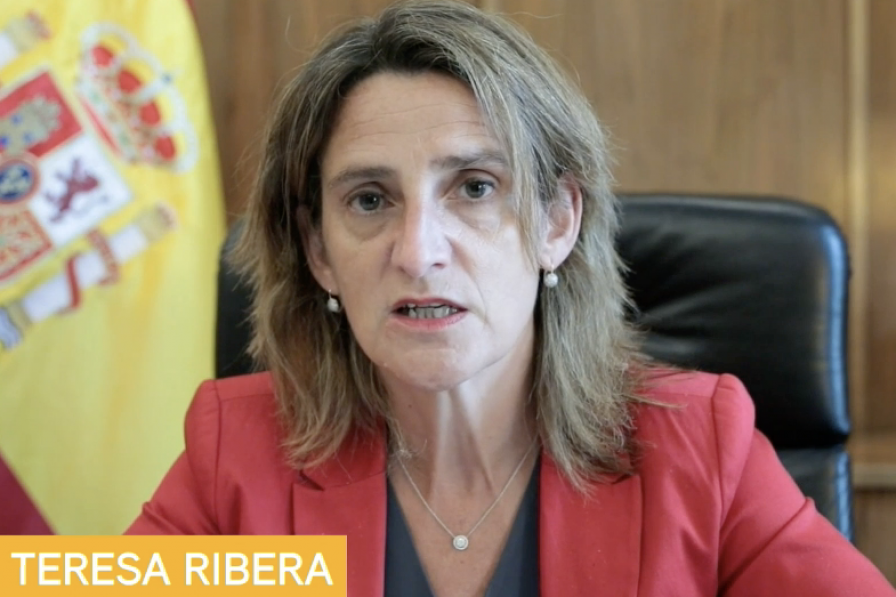
Teresa Ribera, Vice-President and Minister for the Ecological Transition and the Demographic Challenge, Spain
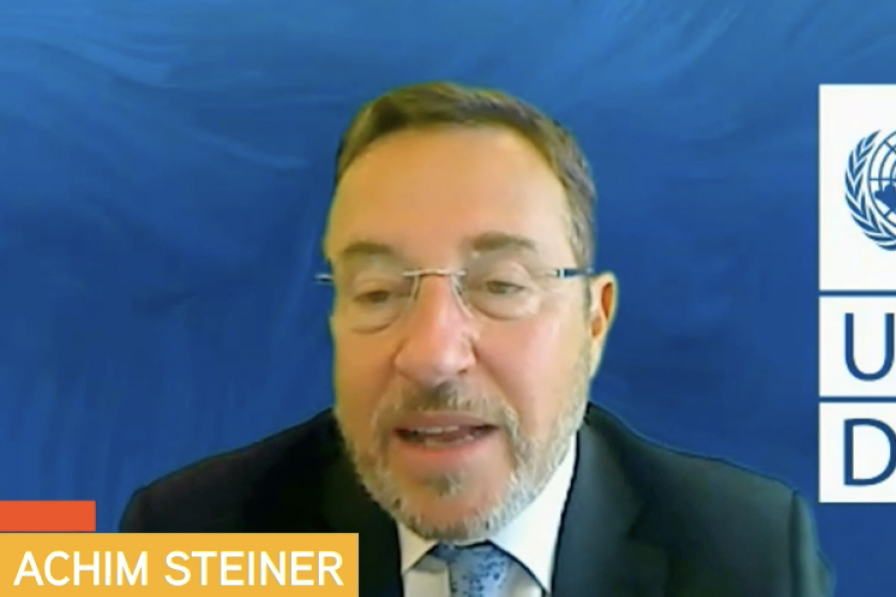
Achim Steiner, Administrator, UN Development Programme (UNDP), Co-Chair, UN-Energy, and Co-Chair, HLDE
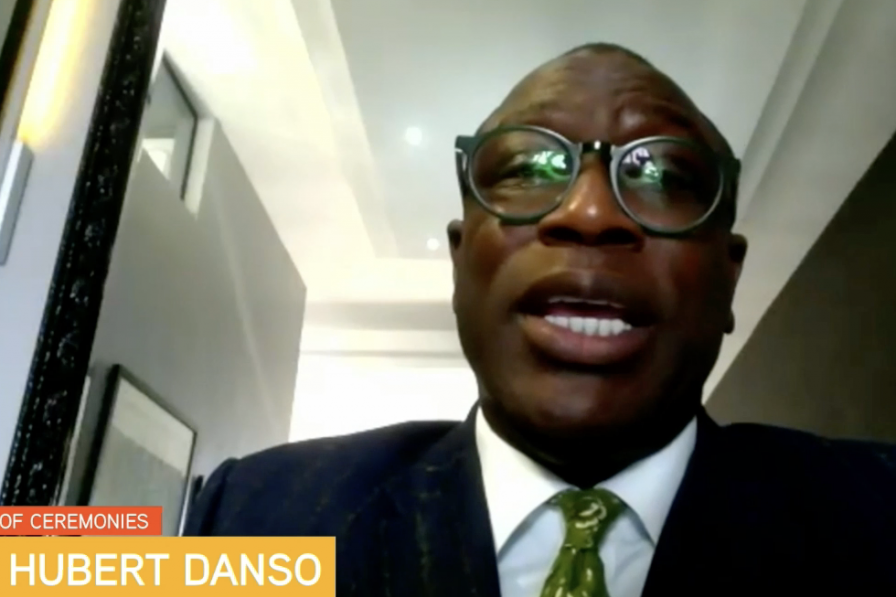
Hubert Danso, Chairman, Africa Investor (Ai) and African Green Infrastructure Investment Bank Advisory Board (AfGIIB)
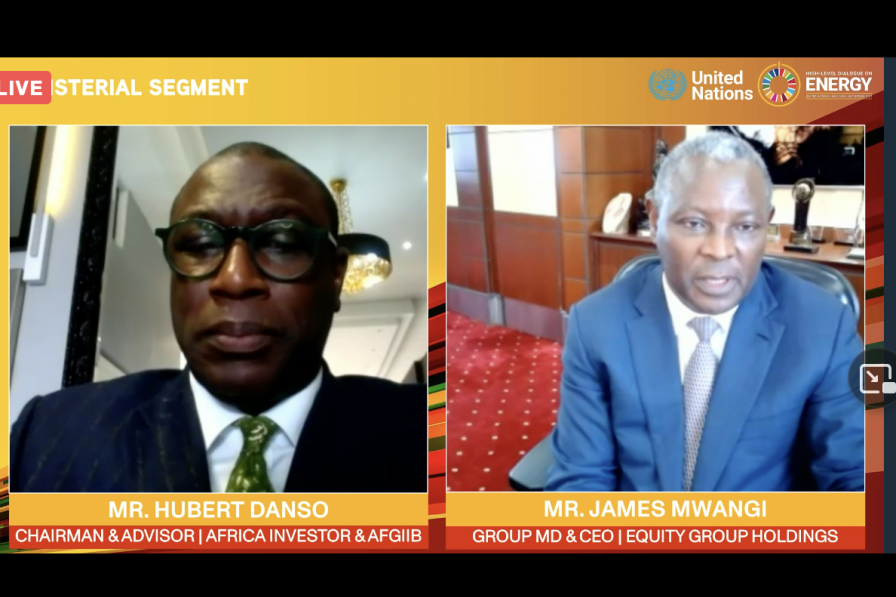
Hubert Danso, Chairman, Africa Investor, African Green Infrastructure Investment Bank Advisory Board, and James Mwangi, Group Managing Director and Group Chief Executive Officer, Equity Group Holdings
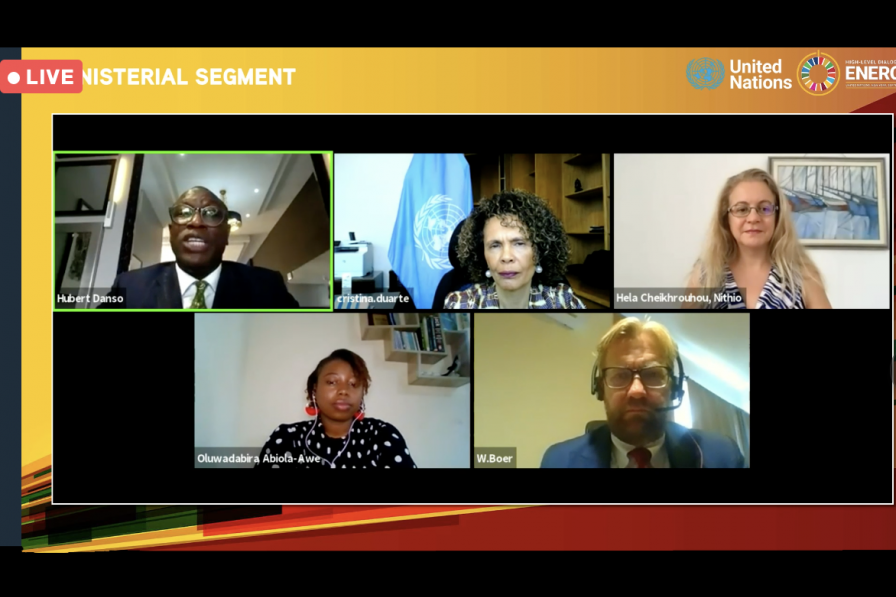
Hubert Danso, Chairman, Africa Investor, African Green Infrastructure Investment Bank Advisory Board; Cristina Duarte, Under-Secretary-General and Special Adviser on Africa; Hela Cheikhrouhou, Chair and Executive Officer, Nithio; Oluwadabira Abiola-Awe, Youth Advocate, Student Energy; and Wiebe Boer, CEO of All On, Shell
